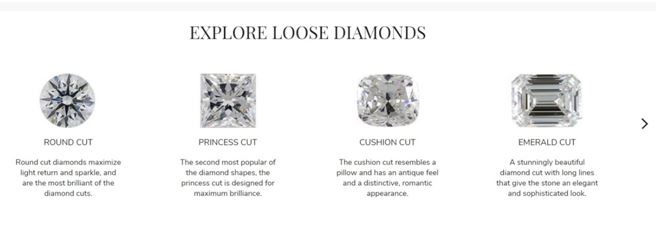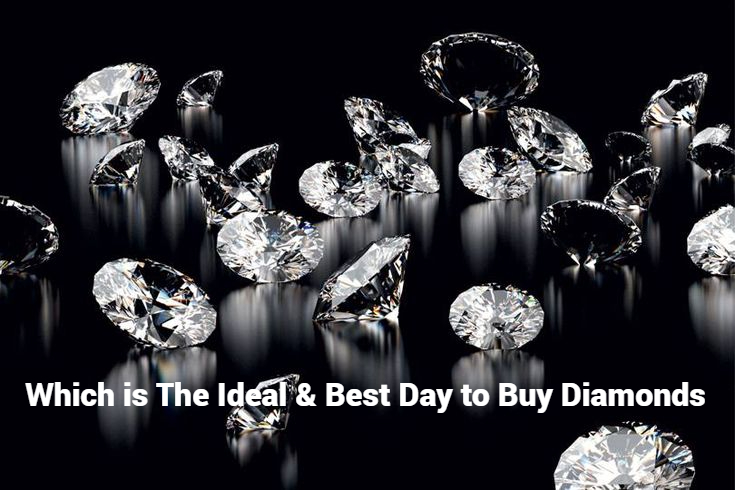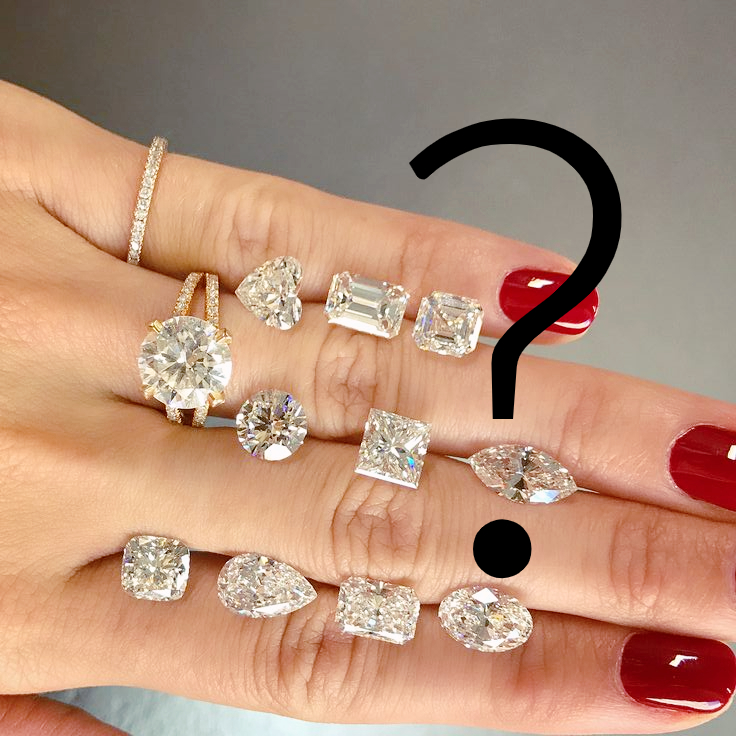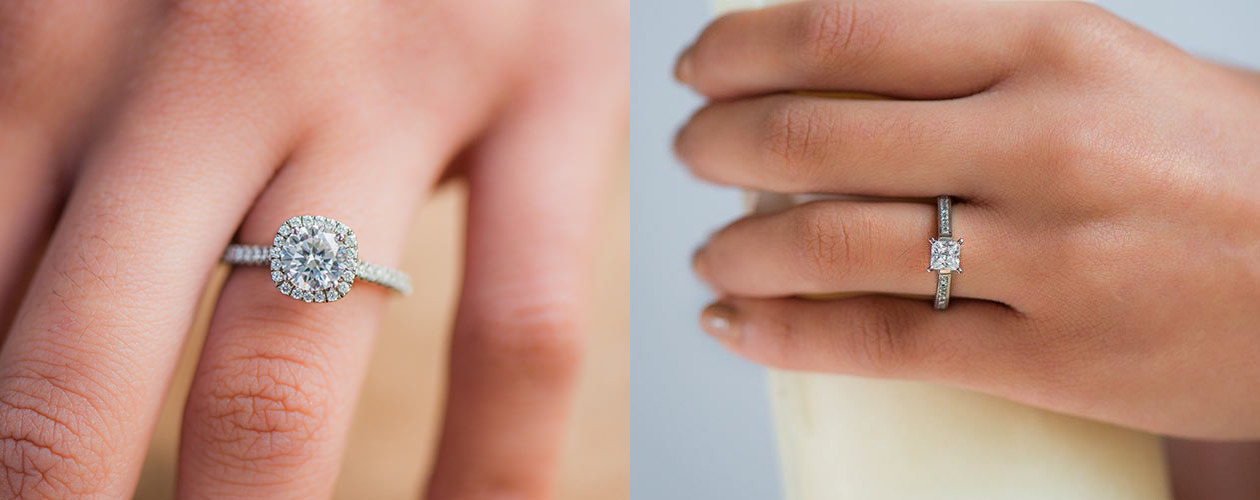Diamonds, long celebrated for their beauty and durability, have not just adorned jewelry boxes but have also captured the imagination of storytellers, gemologists, and spiritualists alike. But beyond their undisputed allure, there’s an intriguing underbelly of tales, beliefs, and science about the effects—both positive and negative—of wearing these sparkling gems. In this exploration, we delve into the purported side effects of wearing diamonds, separating folklore from fact with insights from experts across fields.

The Ancient Beliefs: Diamonds and Destiny
Historically, diamonds have been attributed with various powers, ranging from bestowing luck and courage to even mending strained relationships. However, on the flip side, there are beliefs that ill-fated diamonds can bring misfortune.
Priya Deshmukh, a Cultural Historian, remarks, “Diamonds, especially in ancient Indian and Greco-Roman cultures, were seen as powerful talismans. While they were largely considered beneficial, certain diamonds, often linked with historical tragedies, were deemed cursed.”
Astrological Views: Planetary Energies and Diamonds
In Vedic astrology, diamonds are associated with the planet Venus. While they are believed to bolster the positive effects of Venus, like love, beauty, and artistic abilities, they can, if not suitable, exacerbate the negative traits of the wearer.
Rohit Nair, an Astrologer with 30 years of experience, opines, “Diamonds resonate with the energy of Venus. For those in whose birth chart Venus is well-placed, diamonds can amplify their charisma and creativity. However, if Venus is ill-placed, it can lead to increased vanity or relationship strains.”
Astrologer Rohan Verma explains, “Diamonds, symbolic of Venus, can boost the positive traits linked to the planet, such as affections, beauty, and luxury. However, for individuals with a debilitated Venus or those undergoing challenging Venusian periods, wearing diamonds might not be advisable. It’s believed that for these individuals, diamonds could accentuate negative Venus attributes, possibly leading to strained relationships or financial troubles.”
Scientific Perspective: Allergies and Skin Reactions
While diamonds themselves are inert and unlikely to cause allergic reactions, the metals used in diamond jewelry, particularly nickel in certain gold alloys, can cause skin irritations for some.
Dr. Laura Mitchell, a Dermatologist, warns, “It’s not the diamond but often the metal settings, especially nickel, that can cause contact dermatitis. If you’re allergic, ensure your jewelry is nickel-free.”
Dermatologist Dr. Emily Torres advises, “While diamonds themselves are hypoallergenic, the metals they are set in might not be. Individuals allergic to nickel, often found in gold alloys, should be cautious. They should ensure that their diamond jewelry is set in hypoallergenic metals like platinum or high-carat gold.”
Gemologists’ View: The Quality and Authenticity Matter
Fake or treated diamonds can sometimes be passed off as genuine. While these might not have ‘side effects’ per se, the very knowledge of being deceived can cause emotional distress.
Alexander DuBois, a Gemologist, advises, “Always buy certified diamonds from reputable dealers. The side effects of a fake diamond are more psychological— the pain of betrayal and monetary loss.”
Ethical Consumers
Given concerns about the diamond industry’s past and the prevalence of ‘blood diamonds’ or conflict diamonds, ethically conscious consumers might opt against diamonds unless they are certain of their provenance.
Ethical sourcing advocate Liam O’Reilly notes, “For those deeply committed to ethical buying practices, it’s crucial to ensure any diamond they wear is conflict-free. If there’s any doubt about a diamond’s origins, it might be best for these individuals to refrain from wearing it.”
The Psychological Dimension: The Weight of Extravagance
Diamonds, being luxury items, can sometimes become symbols of one’s socio-economic status. Constantly wearing large and ostentatious diamond jewelry can, in some cases, lead to unwanted attention or even a sense of superiority.
Dr. Hannah Roberts, a Clinical Psychologist, notes, “While jewelry is a form of personal expression, it’s essential to be aware of the psychological baggage that ostentatious displays can carry. It can impact interpersonal relationships and self-perception.”
Professionals in Certain Jobs
Individuals working in professions that involve heavy manual labor or where there’s a risk of the diamond getting caught, damaged, or causing injury might avoid wearing diamond-set jewelry at work. This includes mechanics, construction workers, and some healthcare professionals.
Those with Specific Cultural or Superstitious Beliefs
Certain cultures or families might have specific beliefs or superstitions regarding diamonds. If an individual belongs to such a background, they might be advised, traditionally, not to wear diamonds.
Cultural Historian Dr. Aisha Malik shares, “In some cultures, there are beliefs that unmarried individuals, especially women, should not wear diamonds as it might delay marriage or bring misfortune.”
In Conclusion: Wear with Awareness and Joy
Like all things in life, wearing diamonds comes with its set of myths, realities, and responsibilities. While they undoubtedly add a sparkle to our persona, it’s essential to wear them with a sense of awareness, ensuring they align with one’s values, health considerations, and personal beliefs.
Julia Stone, a celebrated Jewelry Designer, beautifully encapsulates the essence, “Diamonds, in their millennia-long journey from the Earth’s mantle to our fingers, carry tales of nature’s marvel, human craftsmanship, and cultural narratives. Wear them not just for their beauty, but for the stories they tell and the stories they’ll witness in your life.”s


